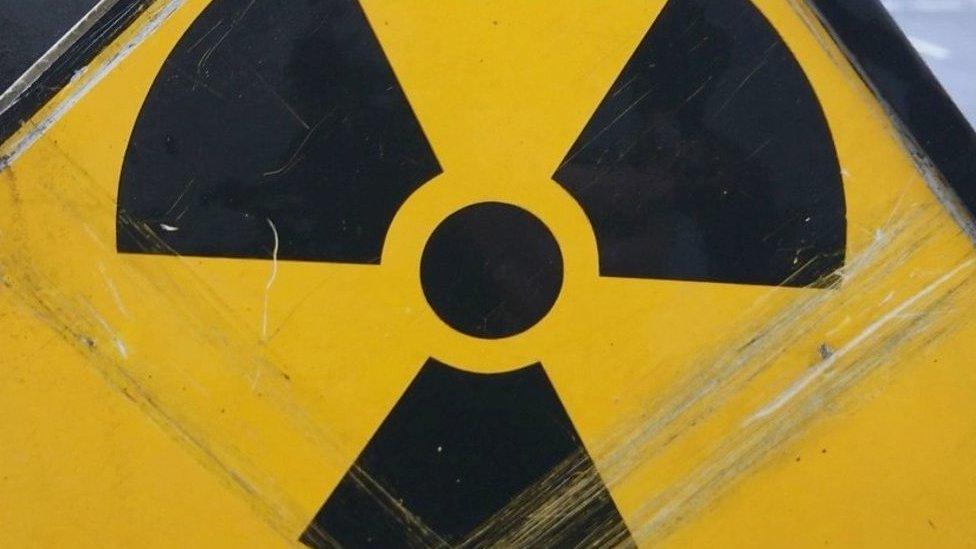Wylfa Newydd: First minister's nuclear power talks call
- Published
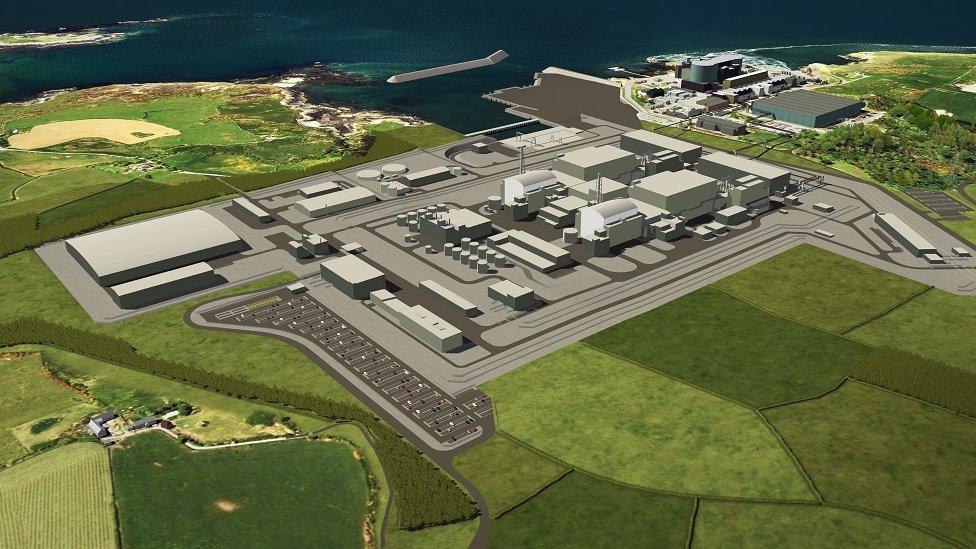
It is proposed that Wylfa Newydd would be able to power about five million homes
First Minister Carwyn Jones has called on the UK government to work "more closely" with his administration on a new nuclear power station on Anglesey.
On Monday, MPs were told by Energy secretary Greg Clark that negotiations on Wylfa Newydd have started.
The news has been heralded as a major step forward for the scheme - which could be financed by public money.
The developers applied for formal planning consent on Tuesday for permission to build the £12bn project.
Horizon Nuclear Power has submitted a 41,000-page dossier to the Planning Inspectorate for a development consent order - as well as four other permits - to construct and open the new station by the mid 2020s.
Welsh Secretary Alun Cairns says Wales' biggest infrastructure project for 30 years would power 6% of the UK energy supply and would employ 9,000 construction jobs - and 1,000 jobs when the plant is operational.
He added the UK government investing in nuclear power plant construction is a "significant shift" in policy, but Mr Cairns told BBC Radio Wales the government wants to "make this project work".
It has been reported that the government could spend as much as half a billion pounds of taxpayers money on the Wylfa scheme. The Welsh Secretary would not put a figure on the potential investment, but said it would be a "significant sum."
The UK government said while a decision on the project's go-ahead has not been made, it insisted the negotiations with developers Horizon and the Japanese government was important step.
Among the key issues will be how much public money and state support will be ploughed into the plant.
"We want to deliver the best value for money for the taxpayer," said Mr Cairns.
The proposals feature a plant with a capacity for generating 2,700 megawatts of electricity, enough power for about five million homes, with a 60-year operational life.
Now the first minister believes the Welsh Government should be involved with any future talks.
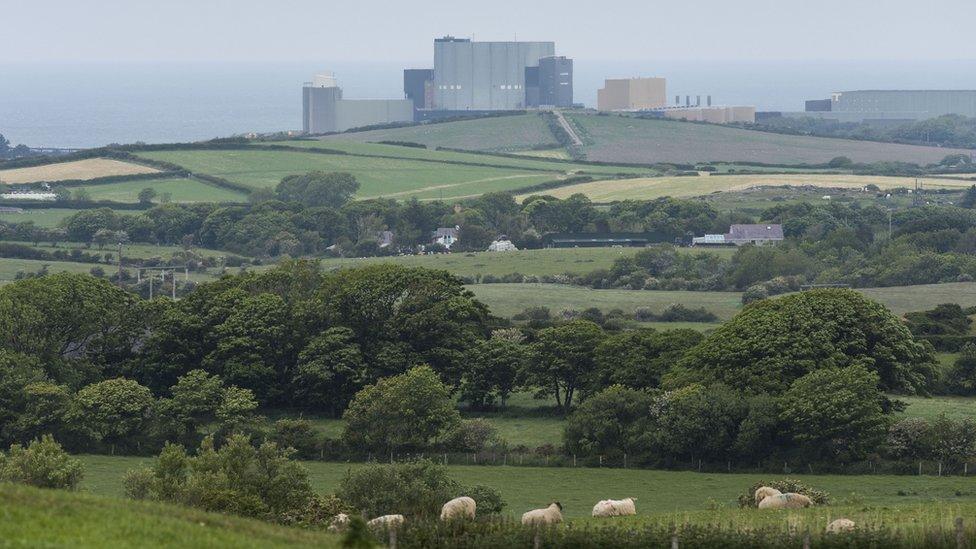
The original Wylfa Nuclear power station was decommissioned in 2015
"The Wylfa Newydd project has the potential to transform the Welsh economy," said Mr Jones.
"It is vital that the Welsh Government has a seat at the table as the project progresses to the next stage and I will continue to press for this.
"The decisions made at a UK and Japan level will have a direct impact on Wales and we expect the UK government to work more closely with us to ensure that every opportunity is realised from this huge project in order to secure lasting benefits for Wales."

Analysis: Brian Meechan, BBC Wales business correspondent
Successive UK governments have long seen nuclear energy as an essential part of ensuring the lights stay on in future.
As we've seen with Wylfa Newydd and the new Hinkley Point C nuclear plant in Somerset, it's an expensive commitment for companies to take on.
With the prospect of taxpayers taking a stake to the tune of billions of pounds, the UK government's shown that it's willing share a large part of that burden in the interests of energy security.
As well as the thousands of construction jobs, almost 900 people will be employed at the site when it begins operation and it could be worth £5.7bn to the Welsh economy, according to independent research.
If it does go ahead, the long-term impact on north Wales will depend on making sure people have the right skills to get the jobs available and businesses benefit from contracts as suppliers.
Critics will continue to be concerned about safety and the impact on the local community, not least on tourism.

Opponents of the new Wylfa scheme are concerned a new nuclear plant would be a risk to the public and create nuclear waste.
Neil Crumpton, from the campaign group People Against Wylfa B, also accused the government of making a "major break from previous funding policy" if the state do help fund the project.
Asked why he is against the scheme, Mt Crumpton told BBC Radio Wales: "Waste generation, proliferation in risk it poses, it's more expensive and it's a radio-toxic technology. Renewables are cheaper, safer and faster."
Haf Elgar, director of Friends of the Earth Cymru, said it was disappointing that the UK Government was prepared to back the new Wylfa plant, "while at the same time capping investment in cheaper world leading renewable technologies like offshore wind".
She said: "The world is on the cusp of a clean energy revolution, yet too much of the UK Government remains stuck in the past - rather than funding nuclear technology, we should be investing in low-cost solar and wind, energy efficiency and innovating in new clean-energy technologies such as tidal lagoons."
- Published4 June 2018
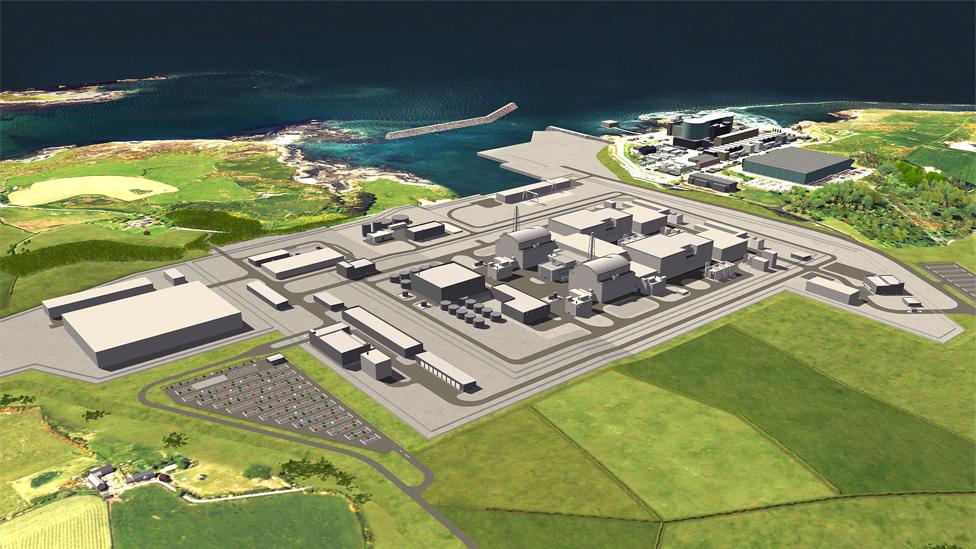
- Published17 May 2018

- Published6 November 2017
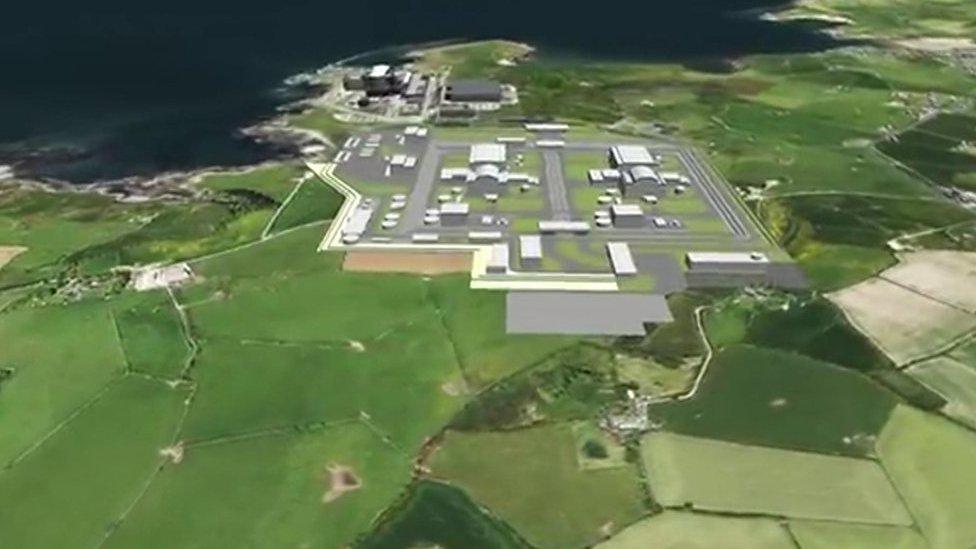
- Published24 May 2017
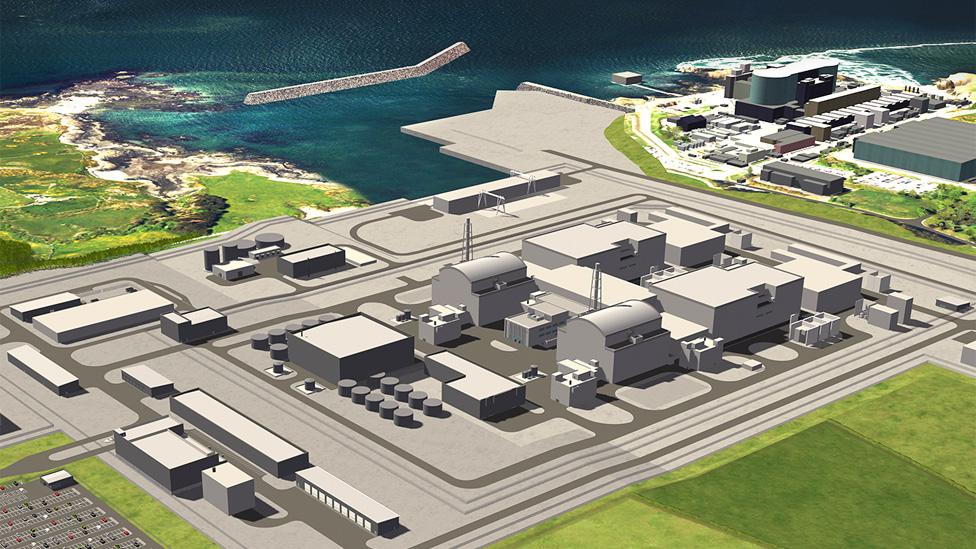
- Published6 July 2017

- Published30 December 2016
